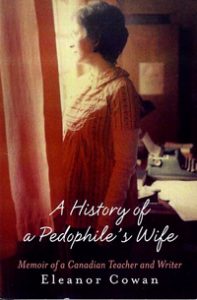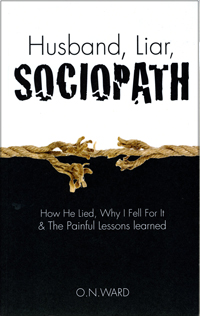 During my fourteen years of marriage, even though I could see and hear, I was blind and deaf to the messages coming in all the time, information that slowly, over time, eroded my hope that marriage and children would solve the unresolved grief in my life.
During my fourteen years of marriage, even though I could see and hear, I was blind and deaf to the messages coming in all the time, information that slowly, over time, eroded my hope that marriage and children would solve the unresolved grief in my life.
One morning in July 1976, I was nursing Teddy while watching the Montreal Olympics on the TV our landlord had kindly loaned to us. In an instant, the pillows that supported my back against the attic wall felt like stone as I listened to a flash news report. Our newborn was asleep when I whispered to Stan, “A child has been sexually abused by her own grandfather in Guelph. What a horrible, unspeakable thing.”
All conscious memory of my own abuse, by my own grandfather, was disconnected and locked away from recall. Still, the words tumbled out of my mouth, faster and faster, “That freak deserves life in prison!”
Standing over me, Stan chided, “Are you aware that judgment is the sole recourse of the simple-minded?”
“What?” I asked, my hands breaking into a sweat. “What would you do if that poor kid had been our Teddy? What would your response to that travesty be?” I looked up, a screaming viciousness rising in my chest.
“I’d inquire,” replied Stan. “I’d approach the situation in a spirit of inquiry. Please remember, in your haste to condemn, the creature you accuse is also a child of God, a struggling human soul.”
“Then before indulging himself, would it not be incumbent upon that ravaged addict to seek help?” I asked, trying to accommodate Stan’s lofty academic style of speaking — vocabulary that concealed his shamelessness.
“I suppose you could ask the same of an alcoholic,” Stan retorted, making a reference to my binge-drinking episodes in my past. “Sometimes the solution involves a conversion experience between God and the tormented individual. You think you know so much, Eleanor. Everything is so simple to you.”
“A child in Fergus was screwed,” I said, my voice breaking out of a whisper. “What’s complicated about that?”
“I’m not going to attempt a rational discussion with someone whose emotions flood logic,” he said. “And your language, especially for a mother, is filthy.”
I stifled revulsion as he shut the flimsy door of our tiny apartment.
“In future,” he shouted on his way down the narrow stairway, “if you wish to make a point, kindly address my intellect without the vile emotional vocabulary that so easily escapes your mouth. And by the way, the locale mentioned in the newscast was Guelph, not Fergus, where you once lived.”
Once again, just as Stan had done at an Ottawa church several years earlier during our engagement, when I volubly cursed the gray-haired vicar there who’d sexually abused a child, the focus of priestly abuse had been replaced by a new topic: my filthy mouth, my lack of compassion, and now, my topple from the mother pedestal.
After his bath that night, I bent over and kissed Teddy’s face, his tummy, and his little penis. Instantly, I wondered, “Why did I do that?” but I didn’t get to answer before I heard Stan’s voice behind me.
“Right now, I could accuse you of sexual abuse,” he said. “I could say that the kiss you gave Teddy constitutes a violation.”
I stood in front of him, red-faced and speechless.
“Things aren’t always so simple, are they?” he said, as he left for his nightly walk in the local park.
Storming back upstairs to our tiny flat moments later, Stan bellowed, “Our landlord spoke disrespectfully to me!” Costa, the owner of the house and a construction worker, lived on the second floor with his wife and baby daughter. He’d warmly offered Stan an interim job on his work crew, labor that would earn money we desperately needed, since my savings were fast dwindling. Twice, Costa and Maria invited us to play cards with them at their kitchen table on Saturday afternoon. Stan insisted he wouldn’t do manual labor and had not the remotest interest in card-playing.
“Costa’s barely contained sneer, every time I pass by, says it all. I suggest you cool it with Maria too, and by the way, I sense similar derision from your La Leche League breast feeding group friend too.
“I never saw any of that, Stan. I was hoping we could get to know Costa and Maria. They have a newborn too!” I had a sinking feeling. No money coming in, no fun card games, no social events with the new young parents who lived just downstairs. I begged Stan to reconsider.
“After the sneers I tolerate?” asked Stan. “Look, when I say people are rude to me, I’d appreciate some support from my wife,” said Stan. “Just because I’m unemployed, I don’t deserve the barely concealed contempt I’m clearly getting from all the people you seem to like so very much.”
Shortly after Stan took off for the library to read a free newspaper in peace, Maria appeared at the top landing. “Sorry husbands fight,” she whispered, handing me a sweet offering of honey baklava. A blue bruise formed in my throat as she placed a finger to her lips, kissed Teddy and crept downstairs again.
I had no idea that there was a reason the pedophile I married preferred not to engage with people.
Blind for a long time, I remained in a lonely marriage devoid of social life for fourteen years before my instincts improved enough to leave Stan forever and begin to deal with my own unexamined history.
Eleanor Cowan is author of “A History of a Pedophile’s Wife,” which is available on Amazon.com. Visit her at eleanorcowan.ca




































 A sociopath will use what you want and desire to inflict maximum pain
A sociopath will use what you want and desire to inflict maximum pain